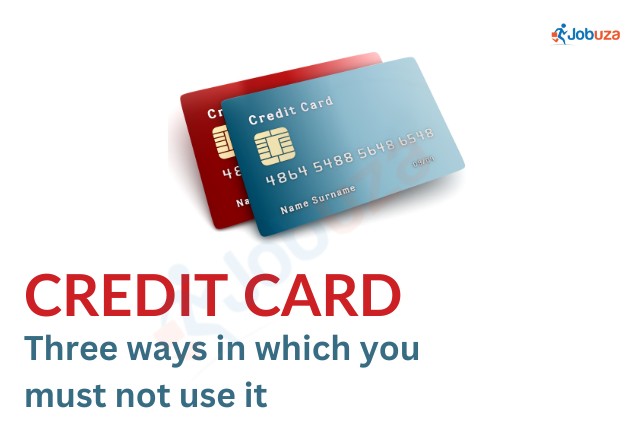Credit cards offer a convenient way to make purchases on credit, with just a quick swipe or tap. But have you ever wondered why banks make it so easy to access this form of credit? While it might seem like free-flowing money, there’s more to it than meets the eye. Banks set a spending limit on your credit card, meaning it’s not an unlimited loan. Plus, approvals aren’t guaranteed—applications can be denied. So, while credit cards appear simple, there are important details you need to understand to make the most of them.
Short-term credit with a catch
A credit card essentially provides you with a short-term loan. But here’s the deal—if you don’t repay the outstanding balance within the interest-free period (usually up to 50 days, depending on your billing cycle), the costs can skyrocket quickly.
Smart over impulsive
Swiping your card for that new gadget or fancy dinner can feel empowering. After all, your savings stay untouched, and you get to enjoy your purchase immediately. But beware of impulsive spending—it can lead to a pile of debt that becomes overwhelming to manage.
By understanding how credit cards work and using them strategically, you can take advantage of their benefits without falling into financial traps.
How can you maintain the freedom to spend while avoiding financial trouble?
Being mindful and strategic with your credit card usage can help you enjoy the perks of easy credit without the stress of overspending.
Spend smart, not beyond your means
Every credit card comes with a pre-set spending limit, determined by factors like your income, credit score, and employment stability. Your billing cycle typically spans 30 days, during which you can spend up to this limit. Once a new cycle begins, your limit is refreshed.
While the credit limit sets the maximum you can spend, it doesn’t dictate what you should spend. That decision is based entirely on your financial situation. For instance, if you’re juggling a hefty home loan EMI, even 10% of your card limit could strain your budget. On the other hand, if you’re a single earner without dependents or major expenses, you might manage spending 40%-50% of your limit comfortably.
Ultimately, your spending should align with your affordability. By keeping your expenses in check and paying off your balance on time, you can enjoy the convenience of a credit card without falling into the debt trap.
Don’t Miss Your Payments
Paying only the minimum due on your credit card might seem like you’re staying on top of things, but in reality, it’s almost as bad as missing the payment entirely. Why? Because it barely makes a dent in your overall balance, and the remaining amount starts accumulating interest—often at very high rates.
Here’s how it works: at the end of each billing cycle, you’ll receive a statement outlining your total outstanding amount. You’ll usually have about 20 days to clear the bill. That means you’re essentially required to repay all your credit card spending from the previous month within this timeframe.
If you don’t pay the full amount, not only will you incur interest charges on the outstanding balance, but any new purchases you make will also start accruing interest immediately. It’s a slippery slope that can quickly lead to a financial mess. So, always aim to clear your bill in full to avoid unnecessary charges and keep your credit card working to your advantage.
Wants, Not Needs
Using your credit card for necessities might seem convenient, but it’s a risky step that pushes you out of your financial comfort zone. Think of a credit card as access to a luxury loan, not a backup for essentials. The interest rates on unpaid balances are no joke—typically 3% to 3.5% per month, or a staggering 36% to 42% annually. That makes it one of the most expensive forms of borrowing if you’re not careful.
The illusion of ease
Swiping your credit card is effortless, and since the payment doesn’t immediately leave your bank account, you might not feel the financial pinch right away. Even when your bill arrives, paying only the minimum due can create the illusion of relief. But this false sense of ease doesn’t last—interest charges can quickly pile up, creating a significant dent in your finances.
Avoid using credit for necessities
If you’re relying on your credit card for groceries or utilities, you risk overextending yourself. Missed repayments can lead to a downward spiral, forcing you to cut back on your lifestyle or dip into your savings to cover ballooning bills.
To stay financially healthy, keep your need-based spending limited to the cash you have in your bank account. This ensures you can consistently afford the basics. Use your credit card selectively—save it for occasional indulgences, like shopping sprees or thoughtful gifts.
Above all, discipline is key. It’s easy to lose track of spending when your money doesn’t immediately leave your account, but the consequences can sneak up on you. By using your credit card wisely and paying your bills in full and on time, you can enjoy its benefits without jeopardizing your long-term financial stability.
click here for more bank jobs/details: https://jobuza.com/category/bank-jobs/


